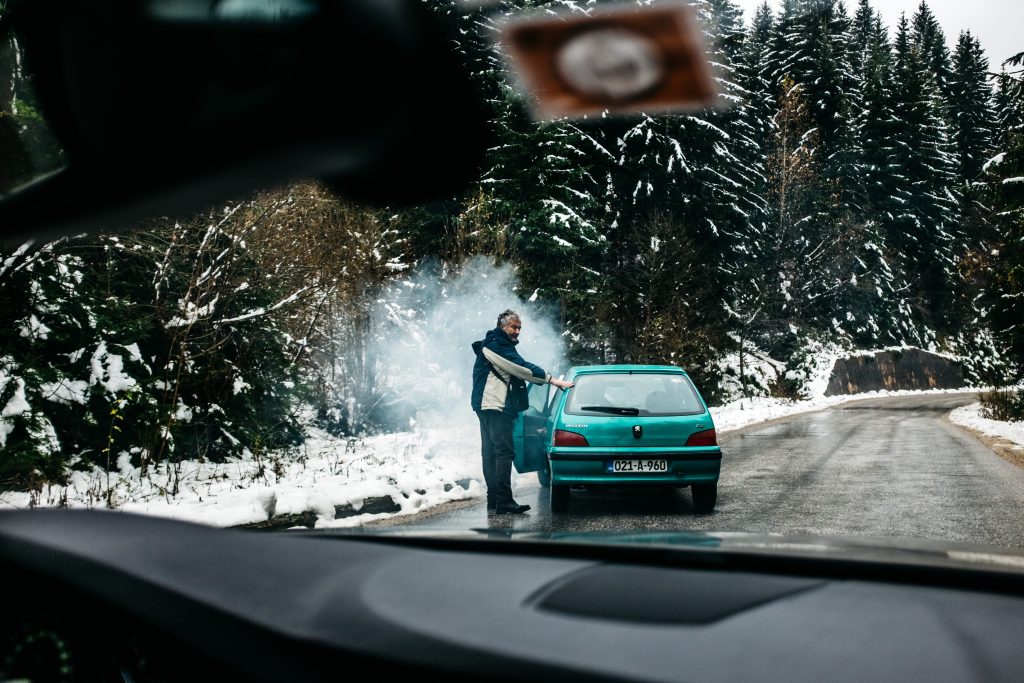
by Joe Bollig
joe.bollig@theleaven.org
Do you stop — or drive on?
If you’re a person who drives a lot, that’s a question you are confronted with frequently.
You see someone — maybe walking, maybe in or near a disabled vehicle — and you have mere seconds to assess the situation and decide if and/or should you stop and try to help.
It’s a practical question and a moral question.
Christians are conditioned by the parable of the Good Samaritan in Luke 10:25-37. The priest and the Levite came along and failed the moral test by ignoring the victim, but the Samaritan stopped to help and won the praise of God.
But there is the practical aspect of the dilemma of “stop/don’t stop.” It’s a matter of safety or whether you even have the ability or resources to help.
Now that cell phones are ubiquitous, you can assume in most cases they can call for help. But not always. Cell phones can lose their charge, or be out of the coverage area, or the stranded person can’t reach anybody.
I once read the obituary of a Catholic priest who frequently stopped to give hitchhikers rides. The last time he did so, the hitchhiker murdered him, and took his wallet and car.
There was once a priest I knew who, while driving past a hitchhiker, would put his hand up over his neck to hide his collar. He was too afraid to stop but he didn’t want to give scandal for his supposed lack of Christian charity.
I say “supposed” because his concerns about becoming a crime victim were legitimate, and I know of no Gospel mandate that requires any Christian to be easy pickings for a psychotic knife killer or other criminal. I think any moral theologian would allow for prudential judgement in these cases.
Sometimes I’ve been the person stranded by the side of the road and I needed help. One snowy winter evening, I slid partially off a highway onramp and the only person who stopped to help me was an elderly African-American woman.
“I usually don’t stop for men,” she told me. “But you looked like you needed help.”
I thanked her and eventually managed to get the car back on the road. It took some courage and faith for her to stop, and I sometimes reflect how she took the risk of stopping for me.
There have been several times when I’ve stopped to help others. One time, I passed a big man in a black leather jacket standing by a car. I had a gut feeling to go back.
When I pulled up, I could see he was crying with frustration. Something was wrong with his car and he was frustrated. He’d been there for an hour, with car after car passing him, unable to reach his wife on his cell phone. He was a Nigerian, relatively new to this country, and didn’t know anybody else to call.
As I gave him a ride, I tried to comfort him, telling him that the same thing happened to me, and that people during rush hour were fixated on getting home. I’m not sure it helped.
One cold winter night I was driving west on Highway 56 south of Lawrence when I passed a young lady standing by a car, not wearing a coat, waving to passing cars. The car in front of me passed her, I passed her, and then the car behind me passed her.
I said “what the heck” to myself and went back.
She was a young Ethiopian lady, either a high school or college student who lived in Olathe. She had borrowed her brother’s car to make what she thought would be a short trip. She became terribly lost and panicked, so she simply pulled over and tried to get someone to stop and help her. She stood outside the car and waved but no one stopped.
I pulled out a flashlight and a map, and showed her where she was and how to get back. But she was so disoriented by the darkness and the emotional toll of her experience that it was clear she would probably get lost again.
I also noticed hypothermia setting in. Not only did she not have a coat, she didn’t know how the heater in her brother’s car worked. So, I adjusted the settings and just told her to follow me, and we carefully drove east to the edge of Olathe.
Once there, she knew where to go.
So, do you stop — or drive on?
There’s no easy answer. You say a prayer, listen to your gut, and act according to your best prudential judgement.






